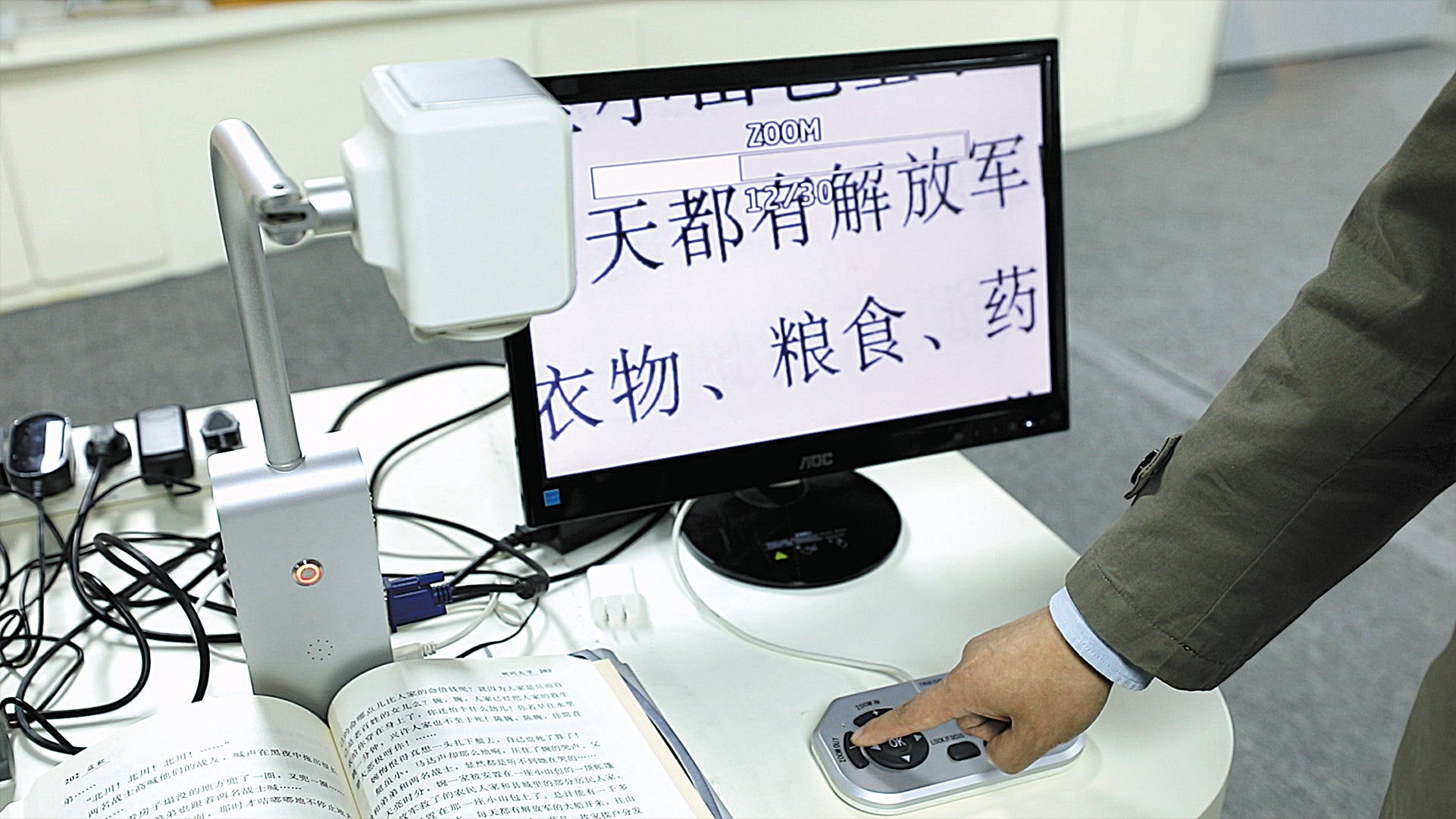Books without barriers
THE ARTICLES ON THESE PAGES ARE PRODUCED BY CHINA DAILY, WHICH TAKES SOLE RESPONSIBILITY FOR THE CONTENTS

It is three o’clock in the afternoon. Golden sunshine tumbles through the southern window of the main reading room of the Braille Library of China, yet there is not a single reader in sight.
Make no mistake: that does not mean the custodians of this literary trove are doing nothing. On the contrary, the librarian on duty is busy. She simultaneously keeps eyes on the social media apps as well as standing ready to answer the phone. All calls and messages come from visually impaired people or their families seeking access to knowledge.
Since the library was founded in 1994 it has operated a mailing service for the visually impaired so they can just write or pick up the phone to request the books they need, then wait at home for them to arrive. After finishing the books, they need only attach a prepared address card to the mail bag that comes with the books, then put it in the mailbox, and it is all free of charge, thanks to government funding.
The mailing service has enabled many visually impaired people to fulfil their dreams of learning at home without needing to travel to the library, something increasingly useful since Covid-19 broke out.
Cheng Donghao, 22, is one of more than 20,000 people a year who directly benefit from the services the library provides. A registered member for about 10 years, Cheng has borrowed Braille books since primary school and acquired the knowledge he needed by running his fingers across the raised dots that lined the pages.
“Now I am preparing for next year’s college entrance exam, and my dream is to study traditional Chinese medicine,” he said.
Mailing books is just one of the remote services the library provides. Another is a smart listening device, which looks like an old-fashioned cellphone. The user just needs to press the buttons under audio guidance to gain access to all 20 terabytes of audiobooks stored on the library website, making access even easier.
The smart listening device is part of a reading project for the blind established by the China Disabled Persons’ Federation in 2017. As part of the programme, the government bought 200,000 such devices and distributed them to the more than 400 Braille libraries and barrier-free reading rooms nationwide to be lent out.
As the market for wearable devices grows, the library and its research teams have also been trying to tap into the trend. One wearable device they have developed, with outside help, is a smart-route detector. Attached to a pair of sunglasses, often worn by the visually impaired, it can take photos of the path ahead, recognise objects and inform the user via audio.

Like all public libraries, as well as lending books, the Braille Library of China holds cultural activities. Every Tuesday it shows a film, during which a narrator stands to the right of the audience and describes the images on screen in between dialogues. The library is now buying the copyright of the films, incorporating its own narration soundtrack and adding footage of a dactylology narrator, so as to make a barrier-free version of the films for all audiences.
“The most effective way of improving the lives of the visually impaired is to help them gain knowledge,” said Zhu Bing, the library’s head. “That’s where we can help, and with smarter tools, we hope to be of even greater assistance.”
Previously published on Chinadaily.com.cn
